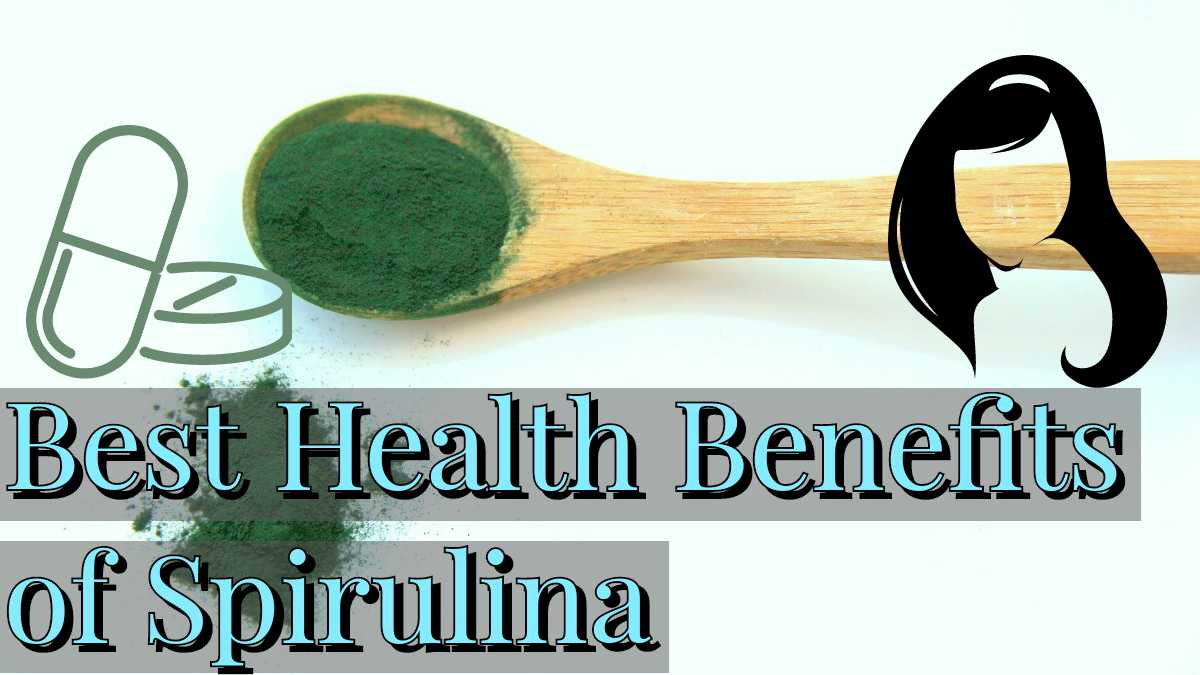Spirulina is a biomass of cyanobacteria that can be consumed by humans and animals. Spirulina is among the world’s most popular supplements.
Spirulina is an organism that grows in both salt and freshwater. It is a family of single-celled microbes that are often referred to as blue-green algae. It is a cyanobacterium that can produce energy from sunlight via a process called photosynthesis. The tiny algae are packed with various nutrients. One tablespoon, which is around 7

Spirulina is the high protein source
Source or Spirulina
- Protein: 4 grams
- Vitamin B1 (thiamine): 11% of the RDA
- Vitamin B2 (riboflavin): 15% of the RDA
- Vitamin B3 (niacin): 4% of the RDA
- Copper: 21% of the RDA
- Iron: 11% of the RDA
- It also contains a decent amount of magnesium, potassium, and manganese and small amounts of almost every other nutrient you need.
Health benefits of spirulina
-
It has antioxidant and anti-inflammatory properties
Oxidative stress can harm your DNA and cells, which can cause chronic inflammation that can contribute to cancer and other diseases. Spirulina is a good source of antioxidants that protects one against oxidative damage. The antioxidant called phycocyanin also gives spirulina its blue-green color. Phycocyanin can fight free radicals and inhibit the production of inflammation signaling molecules.
-
Spirulina help reduce blood pressure
High blood pressure if not treated on time can lead to various serious diseases like heart attacks, strokes, and chronic kidney disease. 4.5 grams of spirulina per day has been shown to reduce blood pressure. The reduction in blood pressure is driven by increased production of nitric oxide, a signaling molecule that helps your blood vessels relax and dilate.
-
Improves Symptoms of Allergic Rhinitis
Allergic rhinitis is characterized by inflammation in your nasal passageways. It is triggered by environmental allergens, such as pollen, animal hair, or even wheat dust. Spirulina is a popular alternative treatment for symptoms of allergic rhinitis, and there is evidence that it can be effective In one study in 127 people with allergic rhinitis, 2 grams per day dramatically reduced symptoms like nasal discharge, sneezing, nasal congestion, and itching
-
May Be Effective Against Anemia
There are many different forms of anemia. The most common one is characterized by a reduction in hemoglobin or red blood cells in your blood. Anemia is fairly common in older adults, leading to a prolonged feeling of weakness and fatigue
In a study of 40 older people with a history of anemia, spirulina supplements increased the hemoglobin content of red blood cells and improved immune function,
Keep in mind that this is just one study. More research is needed before any recommendations can be made.
If you like this post, then share it and follow us on Instagram (@Basicofscience) many thanks for coming to our site Basic of Science, keep visiting our site for tips related to such health.
Disclaimer: Story tips and suggestions are for general information. Do not take these as the advice of any doctor or medical professional. In the case of symptoms of illness or infection, consult a doctor.